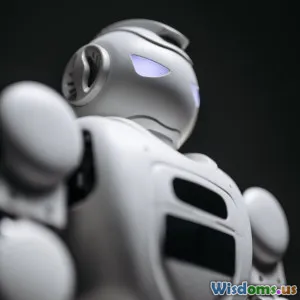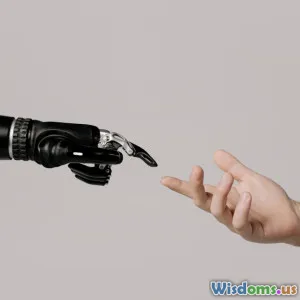
The Ethics of Sci-Fi: Morality in Future Technologies
6 min read Explore the ethical implications of future technologies as depicted in science fiction, and their relevance to our present and future. (0 Reviews)
The Ethics of Sci-Fi: Morality in Future Technologies
Science fiction has long been a mirror reflecting our hopes, fears, and ethical dilemmas regarding technological advancements. As we venture further into the 21st century, we find ourselves standing on the precipice of extraordinary innovations—artificial intelligence (AI), genetic engineering, virtual reality, and more. These technologies not only promise to enhance our lives but also raise significant ethical questions. This article explores how science fiction grapples with these moral quandaries and what lessons we can draw for our future.
The Role of Science Fiction in Ethical Discourse
Science fiction serves as a unique platform for exploring ethical dilemmas associated with technological advancement. By envisioning possible futures, authors like Isaac Asimov, Philip K. Dick, and Octavia Butler have challenged readers to consider the moral ramifications of innovations. For example, Asimov's laws of robotics pose questions about the rights of sentient machines and the responsibilities of their creators.
Case Study: AI Ethics in Sci-Fi
In works like Blade Runner and Ex Machina, the portrayal of artificial intelligence not only entertains but prompts critical reflection on the ethics of creating sentient beings. These narratives question the implications of AI in decision-making, autonomy, and even the potential for exploitation or abuse. As advancements in AI continue, these fictional explorations become increasingly relevant, urging us to consider how we govern and interact with such technologies.
Genetic Engineering: Playing God?
Another prominent theme in science fiction is genetic engineering, as seen in movies like Gattaca and novels such as The Windup Girl. These narratives often depict a world where genetic manipulation leads to social stratification and ethical dilemmas surrounding identity, choice, and what it means to be human.
Ethical Implications
The question arises: should we play God? In our quest to eliminate diseases or enhance human capabilities, we must grapple with the ethical implications of altering our genetic makeup. The potential for eugenics, inequality, and the loss of genetic diversity becomes crucial considerations that science fiction vividly illustrates.
Virtual Reality and Identity
Virtual reality (VR) has moved from the realm of science fiction into our daily lives. Films like Ready Player One explore the moral complexities of living in virtual worlds.
Issues of Reality and Ethics
As VR technology evolves, it raises questions about identity, escapism, and the nature of reality itself. If individuals can create and inhabit alternate identities, how does this impact their sense of self and societal interactions? Fictional narratives help us navigate these uncharted waters, allowing us to reflect on the ethical implications of our choices in virtual spaces.
Lessons for Our Future
The ethical dilemmas presented in science fiction serve as cautionary tales and guides for our real-world technological developments. They remind us that as we innovate, we must also reflect on the moral implications of our actions. Here are some key takeaways:
- Ethics Must Be Central: As we develop new technologies, ethical considerations should be at the forefront of discussions.
- Public Engagement is Crucial: Open conversations about the implications of emerging technologies can help shape policies that prioritize human welfare.
- Learn from Fiction: Science fiction can provide valuable insights and frameworks for understanding the potential consequences of our innovations.
Conclusion
As we stand on the brink of unprecedented technological advancement, the ethical questions posed by science fiction become even more pertinent. They challenge us to think critically about our choices and the future we want to create. By examining these narratives, we can better navigate the complexities of morality in an age of rapid change, ensuring that our innovations serve humanity positively and ethically.
In the words of science fiction author Arthur C. Clarke, "The only way to discover the limits of the possible is to venture a little way past them into the impossible." As we do so, let us carry with us the lessons of ethics illuminated by the imaginative worlds of science fiction.
Rate the Post
User Reviews
Popular Posts





















